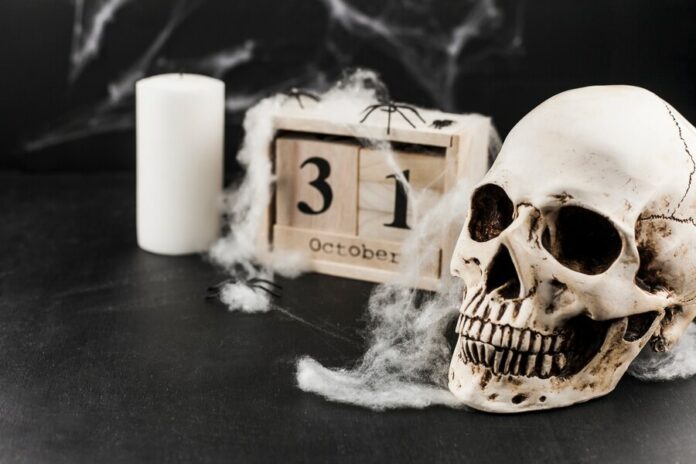Imagine waking up each day with a deep awareness of your own mortality. What decisions would you make? How differently would you live? That’s the essence of Memento Mori—a practice thousands of years old, yet strikingly relevant to modern life. It’s not merely a morbid fixation on death; it’s a gentle nudge, reminding us to live our days with purpose, intention, and authenticity.
This blog explores the philosophical roots and modern applications of Memento Mori, offering practical ways to weave this ancient wisdom into our everyday lives. By the end of this article, you’ll discover how reflecting on mortality can inspire you to truly live fully.
What Is Memento Mori? Its Historical Significance
Memento Mori, Latin for “remember you must die,” has been an enduring concept throughout history. Ancient Roman generals would have a servant whisper these words in their ear during a victory celebration, grounding them amidst their triumphs. Far from being morbid, this phrase symbolized humility and a reminder that every success, struggle, and life itself were fleeting.
Later, in medieval Europe, Memento Mori became prominent in Christian art and literature, where it served as a spiritual reminder to focus on eternal life rather than earthly possessions. Paintings of skulls, hourglasses, and wilting flowers acted as symbols of mortality, encouraging individuals to ponder their impermanence and align their lives with their core values.
Across different cultures and eras—whether in Stoic philosophy, Buddhist meditations, or Día de los Muertos celebrations—Memento Mori has encouraged people to live fully by acknowledging the transience of life.
The Philosophical Foundations of Memento Mori
The philosophy of Memento Mori is deeply intertwined with Stoicism, an ancient Greek school of thought championed by philosophers like Marcus Aurelius and Seneca. Stoics believed that reflecting on death wasn’t about fear but clarity. Marcus Aurelius, in his Meditations, reminds us that everything is transient, writing, “You could leave life right now. Let that determine what you do and say and think.”
This practice helps remove trivial distractions and aligns us with what truly matters. It’s a stark but liberating realization—while life is temporary, the way we live today can offer lasting meaning.
Memento Mori in Daily Life: Living With Awareness of Mortality
While the concept of mortality can seem overwhelming, integrating Memento Mori into everyday life is far from gloomy. It fosters:
- Gratitude for the present moment.
- Encouragement to focus on priorities over meaningless pursuits.
- A framework to evaluate decisions based on long-term fulfillment rather than short-term gain.
For example, when faced with a dilemma like whether to take that once-in-a-lifetime trip or continue delaying it, Memento Mori can guide you to say, “What would I regret most if I left this life tomorrow?”
Real-World Impacts of Memento Mori
- Relationships amplify in meaning as you become more attentive and present with loved ones.
- Clarity emerges in decision-making, pushing procrastination and hesitation to the background.
- Daily stressors lose their grip because you learn to differentiate between what truly matters and what doesn’t.
The Intersection of Memento Mori With Personal Development
One of the profound ways Memento Mori aligns with personal development is by emphasizing self-awareness. When we frequently reflect on the fleeting nature of life, we begin to peel back superficial layers and confront what we want to stand for.
This concept resonates with modern behavioral psychology as well. Studies have shown that reminding ourselves of mortality, a practice known as “mortality salience,” can significantly impact decisions—leading to more meaningful pursuits and decreasing fixation on petty concerns.
Furthermore, this awareness of impermanence inspires resilience. Once we accept that challenging moments are just as temporary as joyful ones, we may approach setbacks with greater strength and adaptability.

Practical Strategies to Integrate Memento Mori Into Daily Routine
Interested in applying Memento Mori in a way that inspires rather than overwhelms? Here are practical ways to bring this mindful philosophy into your life:
1. Morning Reflection
Begin your day with a reminder of your mortality. Instead of dreading this thought, see it as an invitation to seize the day. You might journal or meditate on questions like:
- What is one meaningful thing I can do today?
- How can I show up fully for the people I care about?
2. Wear or Display a Symbol of Memento Mori
Physical reminders, such as a piece of jewelry or art with Memento Mori symbolism (e.g., a skull or hourglass), can serve as subtle daily prompts to focus on what matters most.
3. Meditate on Impermanence
Practices like mindfulness meditation or guided reflections on impermanence (drawn from Buddhist traditions) can help soothe the fear of mortality, replacing it with clarity and purpose.
4. Set “Mortality Checkpoints”
Take moments throughout the week to ask yourself, “If this were my last day, what would I focus on? What’s most important?”
5. Create a Life Manifesto
Write down the principles you’d like to live by, keeping Memento Mori in mind. Reflect on it regularly—updating it when necessary—to ensure you’re living in alignment with the person you aspire to be.
6. Keep Gratitude Front & Center
Pairing Memento Mori with gratitude is powerful. End your day by noting three moments or interactions you genuinely appreciated. They’ll remind you why life is worth living fully.
Case Studies of People Who’ve Transformed Their Lives With Memento Mori
Consider impactful figures who embraced the philosophy of living with the awareness of mortality:
- Steve Jobs, in his famous Stanford Commencement Speech, shared how reflecting on death every day helped him stay focused on what mattered.
- Elizabeth Kübler-Ross, a pioneer in studying terminal illness, showed how awareness of death often led her patients to find newfound joy and connection despite their circumstances.
- Everyday individuals, from cancer survivors to Stoicism practitioners, often attribute their renewed zest for life to reflecting deeply on its transient nature.
These stories highlight that Memento Mori is more than a philosophical thought—it’s a catalyst for positive, deeply personal change.
Live Fully With Memento Mori as Your Guide
Memento Mori isn’t about dwelling on death; it’s about celebrating life. By acknowledging your mortality, you can uncover a sense of purpose, cultivate gratitude, and align your actions with your deepest priorities.
Each day offers us a choice. Will we scroll endlessly, hold onto grudges, and postpone our dreams? Or will we see life for what it truly is—a finite but extraordinary gift?
The choice is yours. Start integrating Memento Mori into your life today and watch as this ancient concept becomes a guide for modern living. Live fully, love deeply, and let each day count.


